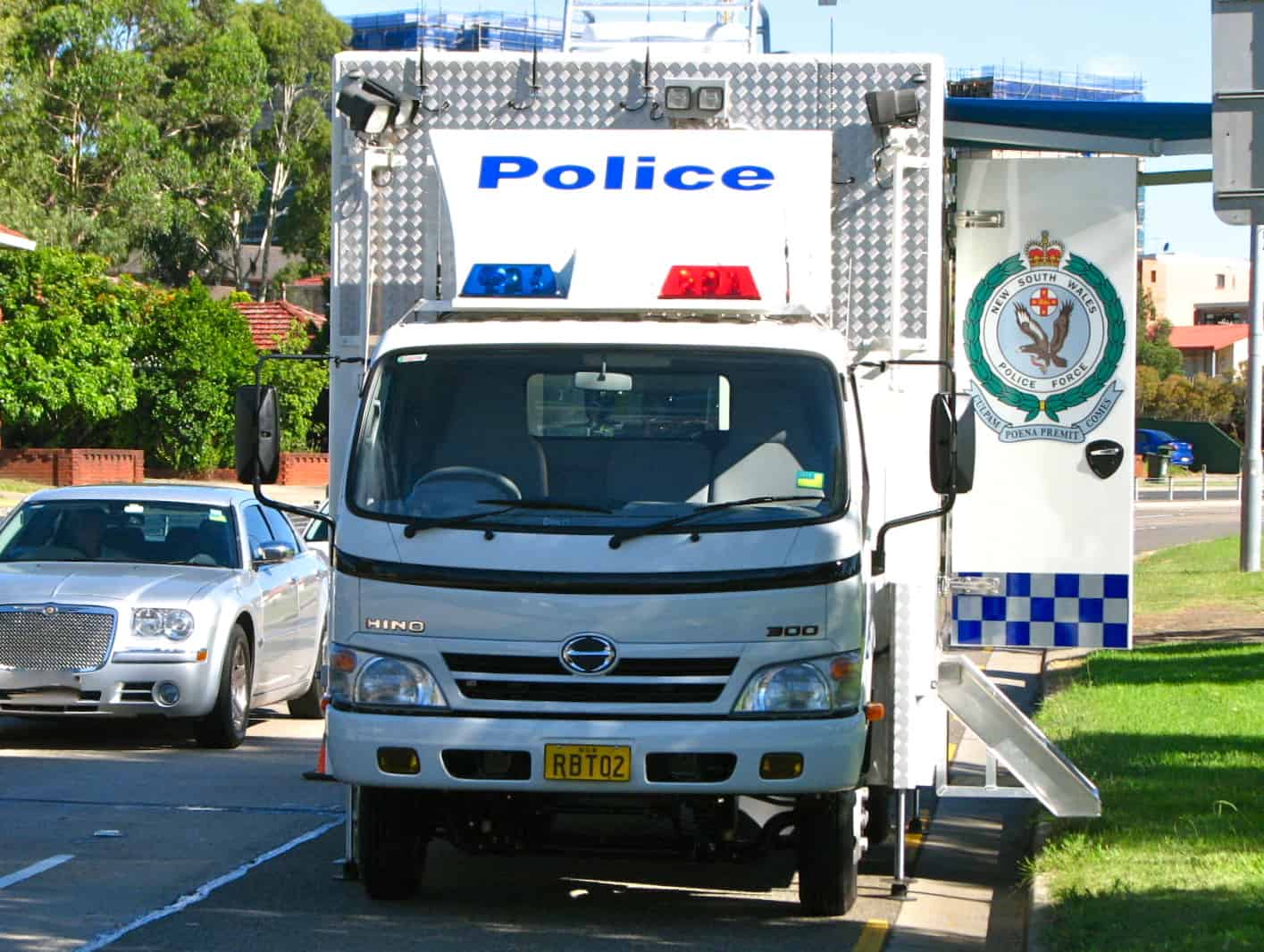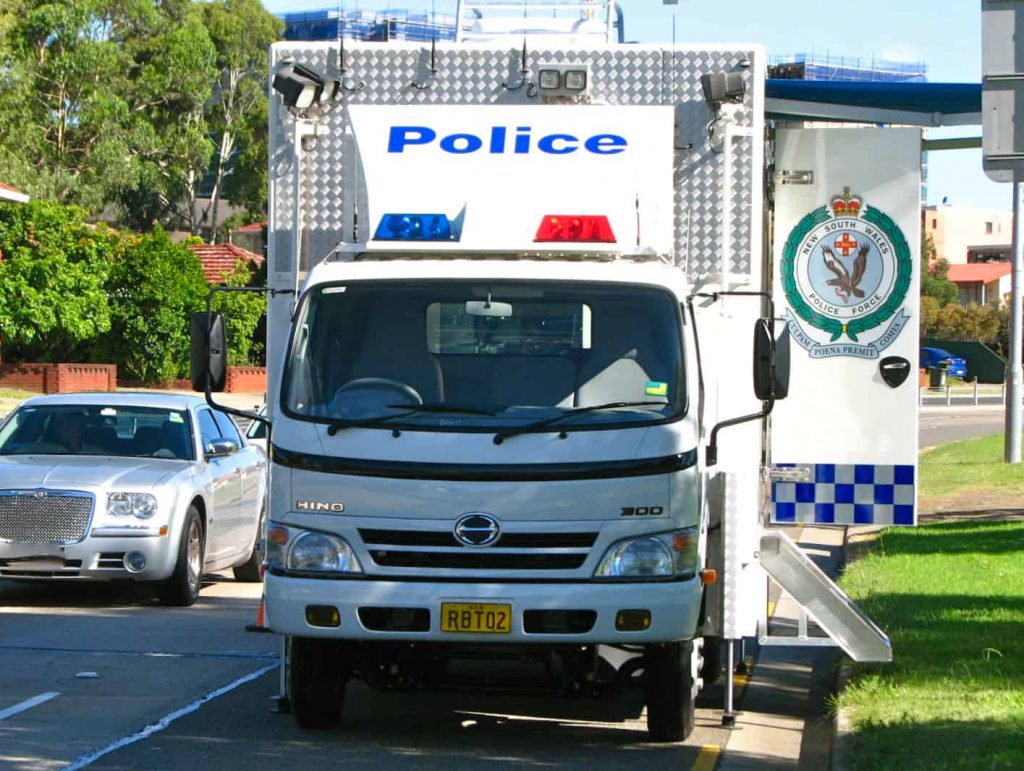Rethinking Strip Searches by NSW Police, a new report commissioned by Redfern Legal Centre and prepared by University of New South Wales Law academics Dr Michael Grewcock and Dr Vicki Sentas has found that while strip searches are on the rise in NSW, most strip searches reveal nothing of evidential value, and instead add to unnecessary humiliation and stress of innocent citizens. Alarmingly, the report found that many strip searches executed by NSW police are in fact unlawful because more often than not the police do not understand the law. In addition, the law does not provide police with clear guidance on conducting strip searches.
The report is timely and calls for substantial, systemic change to strip search practices. It has been released in the wake of the Law Enforcement Conduct Commission’s (LECC) investigation into strip search practices, and the current coronial inquest into the deaths of six young people at music festivals in New South Wales. In June 2019, an internal police analysis reportedly disclosed concerns about the unlawful conduct of strip searches and the lack of clarity around key legal provisions.
When can police search you?
The Law Enforcement (Police Powers and Responsibilities) Act 2002 (NSW) (LEPRA) states that NSW police must have reasonable grounds of suspicion before conducting any search of your person.
Specifically, police must suspect on reasonable grounds that you might have in your possession stolen goods; anything used or intended to be used in the commission of a relevant offence; a dangerous article that is being used or has been used in the commission of a relevant offence; or a prohibited plant or drug. Police may also seize and detain anything unlawful or dangerous found as a result of a search under this section.
In conducting a search, police may ask you to open your mouth or shake or move your hair. They are not allowed to insert fingers in your mouth or in any other cavity. They may quickly run their hands over your outer clothing; require you to remove your coat or jacket or gloves, shoes, socks and hat; examine items in your possession; and pass an electronic metal detection device over your person.
If you are ever told that you will be searched, you should indicate that you do not consent, but you should still comply with police directions including a direction to be searched.
You could ask the police to record your lack of consent in their notebook and ask to initial the entry, or you could ask that the office use Body Worn Video (BWV) to record the search.

What is a legal strip search?
A strip search requires a person to remove some or all of their clothing in order to examine their body (but not their body cavities) without their consent. LEPRA states that, when inside a police station or other place of detection, police may conduct a strip search if a police officer suspects, on reasonable grounds that it is necessary for the purposes of a search. When a search is being carried out in any other place, a police officer may only carry out a strip search if they have reasonable grounds of suspicion and the circumstances are serious and urgent.
Police are required to follow strict rules while conducting strip searches:
- They must tell you if you will be required to remove clothing. They must tell you why it is necessary. They must ask for your cooperation. They must search you in a way that provides reasonable privacy. And they must conduct the search in a private area;
- The search must be quick, and as least invasive as practicable, requiring you to remove only the amount of clothing necessary for the search.
- The person who conducts the search must be the of the same sex, and the search must not be in the view of anyone of the opposite sex. If you are non-binary or transgender, you must be able to request to be searched by an officer of a gender with which you feel most comfortable.
- You must not be questioned during the search, and you must be allowed to dress immediately after the search has concluded. If the police seize any items of your clothing, the police officer must ensure you are left with reasonably appropriate clothing.
- A person’s body cannot be examined by touch, and the search must not involve any more visual inspection than is necessary. A strip search should be an observation of your body and not an investigation of cavities. In this respect, police can ask you to shake your hair, look in your mouth and observe you naked. But police must not put their fingers in your mouth or in any other cavity.
- Importantly, the report suggested that any strip search involving asking a person to “squat” and “cough” is likely to be found illegal under scrutiny. This is because while police officers may not be touching the body they are searching, they are still, in effect, performing a cavity search. Police must obtain a court order to examine cavities and this is only done in very serious circumstances.
- A strip search may not be performed on children under the age of 10. For children between the ages of 10 and 18, or for people with impaired intellectual functioning, a search must be in the presence of a parent, guardian, or a person who is not a police officer who can represent the best interests of the person being searched. If, however, it is not reasonably practicable for an independent adult to be present or located in the circumstances, then the search can go ahead anyway.
What were the findings of the Report?
The report found that strip searches routinely go beyond the law and are on the rise in New South Wales. Data put on the public record in 2019 shows that strip searches increased by 46.8% over four years and, on average, found nothing on suspects 64% of the time.
The report suggests that the power to strip search is often invoked by police to punish or humiliate, rather than simply to search a person. Police data shows that strip searches are rarely used in serious and urgent circumstances. Mere suspicion of drug possession, which accounts for the majority of strip searches, does not legally justify a strip search. This means that strip searches conducted at music festivals and railways stations in relation to low-level drug offences, in circumstances where there is no immediate, serious threat to personal safety, are likely to be deemed illegal.
The report suggests that the use of Drug Detection Dogs may be propelling unnecessary and illegal strip searches. Case studies and police data show that an indication from a Drug Detection Dog alone is being used to justify the use of strip searches. About 20% of strip searches in 2017 occurred as a result of an indication from a Drug Detection Dog, but escalating straight to a strip search based on a positive indication from a Drug Detection Dog is against the law, and against the NSW Police Special Operating Procedures.
Finally, the report stressed the harm that strip searches cause. Strips searches have been recognised as “inherently humiliating and degrading” by the courts, and “enforced nudity” by the State. Recognising a strip search as a violation of a person’s right to bodily integrity and autonomy, the report looked to international research which evidences the significant psychological harm that strip searches can trigger. It states that the global body of evidence justifies strip searches only in the last resort, and only in the most exceptional circumstances.
Why don’t police know what’s legal and what’s illegal?
The report finds that police are often unaware of the laws relating to strip searches. In Attalla v State of NSW [2018] NSWDC 190 the plaintiff successfully sued the NSW police for conducting a strip search when a female police officer strip searched the (male) plaintiff. On top of this, the police officer who conducted the strip search did it in response to the plaintiff’s “lack of submission” at the scene. This is not a sufficient reason to strip search a person. In Fromberg v R [2017] NSWDC 259 the plaintiff successfully sued the NSW police because the police conducted a strip search before having any reasonable suspicion to do so, without having exhausted other less invasive avenues first. In both cases, it was revealed that the police officer conducting the strip search thought that they had the power to do the strip search, when in fact they did not.
The report suggests that vague and imprecise language of the legislation does not give police clear guidance on how and when to perform strip searches. Furthermore, the Code of Practice for Custody, Rights, Investigation, Management and Evidence (CRIME), and the non-statutory guidelines given to police on how to interpret and execute LEPRA, does not provide any additional clarity to police.

How does the Report suggest the law should be changed?
The report calls for more transparency and clarity in the wording and thresholds of LEPRA and an overhaul to the strip search powers. Namely, it asks that strip searches are only used when:
- there are reasonable grounds to suspect a person possesses a dangerous weapon; and
- following a personal search there are reasonable grounds to believe the person is concealing a weapon; and
- there are reasonable grounds to believe that a strip search is necessary to prevent an immediate risk to personal safety or to prevent an immediate loss or destruction of evidence; and
- the reasons for conducting the search are recorded on BWV before the search commences.
In order to address the current practice of police strip searching for possession of drugs, the report recommends strip searches should be limited in the field to where:
- there is a reasonable suspicion that the person has committed or is about to commit an offence of supply a prohibited drug; and
- this suspicion is not formed solely on the basis of an indication from a drug detection dog, or the failure of a personal search to yield any prohibited substances; and
- there are reasonable grounds to believe that the strip search is necessary to prevent an immediate risk to personal safety or to prevent the immediate loss or destruction of evidence; and
- the reasons for conducting the search are recorded on BWV before the search commences.
Written by Dr Diana Shahinyan, a member of the DTL Crime Team.
Further Advice
This information is general in nature and you should always speak to us in case your circumstances require specific advice.
If you think you have been illegally strip searched or if you have been issued with a court attendance notice or need advice, contact our criminal law team on email at enquiries@dowsonturco.com.au or phone 02 9519 3088.



